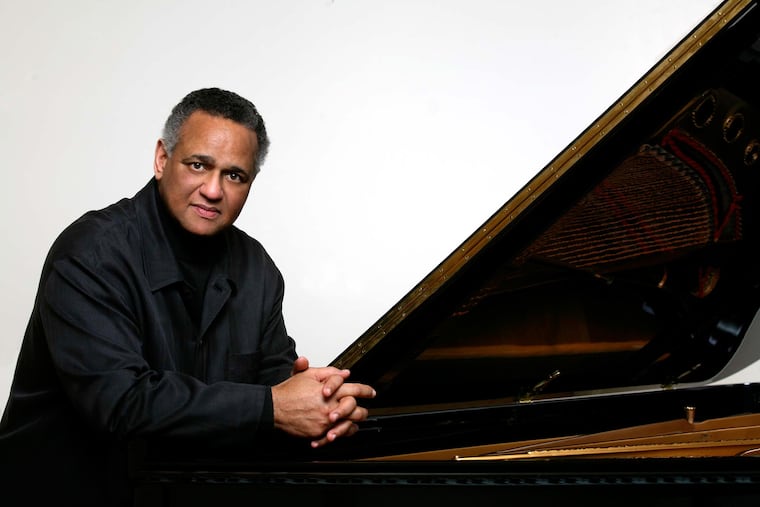Pianist André Watts, 77, major soloist and one of the Philadelphia Orchestra’s most popular guests, has died
He performed with the Philadelphia Orchestra nearly 130 times.

André Watts, 77, a piano prodigy who received his training in Philadelphia and went on to become one of the very few Black instrumentalists with a major solo career, died July 12 in Bloomington, Ind. His death was announced by the Indiana University Jacobs School of Music, where he had been on the faculty since 2004. He died of prostate cancer, his manager said.
Mr. Watts was one of the most popular soloists in the Philadelphia Orchestra’s history. From 1971 until 2014, hardly a season went by without at least one visit from the charismatic pianist, and sometimes there were several. Between his first performance in 1957 — when he was 10 — and his last in 2014, he performed Brahms, Chopin, Liszt, Beethoven and Rachmaninoff with the Philadelphians in nearly 130 concerts in Center City and Fairmount Park, at Carnegie Hall and the United Nations, and across the country.
Even as a child, he had the “gift of poetry,” Philadelphia Orchestra associate conductor William Smith told The Inquirer in 1984. ‘’You knew immediately that this was a big talent, that he would have a career.”
He was a “sensitive-faced 16-year-old boy from Philadelphia,” Leonard Bernstein said in introducing Mr. Watts before a New York Philharmonic Young People’s Concert in 1963 that was broadcast nationwide. He wowed the TV audience with Liszt.
A little more than two weeks later, he was waiting for his lesson at the Philadelphia Musical Academy when the manager of the New York Philharmonic called, inviting him back to step in for an ailing Glenn Gould. His career was launched.
Mr. Watts was born in Nuremberg, Germany, in 1946, and at age 8 moved to Philadelphia with his family and piano into a rowhouse at 62nd and Market Streets. As a boy he would sometimes play hooky from school, escaping to the Free Library of Philadelphia to soak in recordings of famous pianists. At the Philadelphia Musical Academy (which later merged with the University of the Arts), he studied piano with Genia Robinor, a pupil of the legendary Theodor Leschetizky and others; and composition, theory and music history with Joseph Castaldo.
A competition with the Philadelphia Orchestra won him the performance with the ensemble at age 10, and he had another at 14. He enrolled at the Peabody Institute when he was 20, studying with Leon Fleisher while already landing concert dates with the Boston Symphony Orchestra and National Symphony. His career of recitals, chamber music and concertos with major orchestras spanned decades.
Critics admired his intensity. “Watts’ playing moves forward. His opening solo playing made those thick chords glow with anticipation and helped make the orchestral entrance more than usually dramatic,” wrote Inquirer music critic Daniel Webster of a 1993 performance of Rachmaninoff’s Piano Concerto No. 2 with the Philadelphia Orchestra. The playing was “always kinetic.”
Mr. Watts is included in the Philips Records Great Pianists of the 20th Century box set. He received honorary degrees from Yale University and the University of Pennsylvania, a Grammy Award, the Avery Fisher Prize, and, in 2011, the National Medal of Arts.
“He was a beautiful player,” said retired Philadelphia Orchestra violinist Robert de Pasquale, who was a member of the New York Philharmonic when Mr. Watts made his debut there.
“To me, he was like Yo-Yo Ma — he would walk out on stage and the audience would love him.”
Mr. Watts is survived by his wife, Joan Brand Watts, stepson William Dalton, stepdaughter Amanda Rees, and seven step-grandchildren. No memorial was immediately announced.